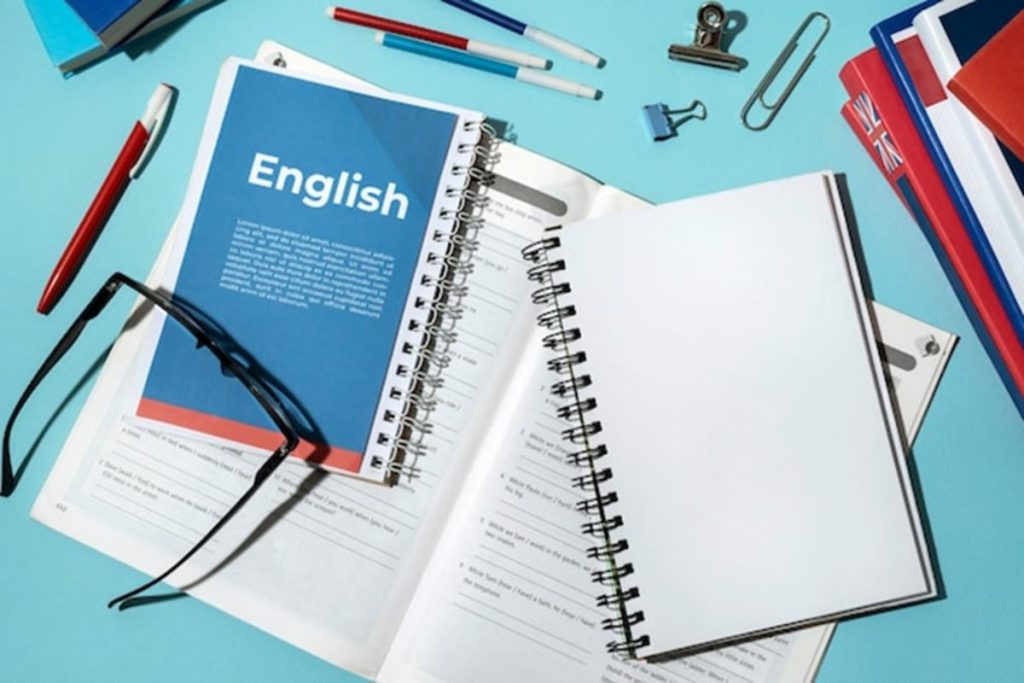Literature at Higher Level: Rita Mae Brown once said, “Language is the road map of a culture. It tells you where its people come from and where they are going.” This statement beautifully captures the essence of why exploring language and literature is so crucial. Beyond mere academic engagement, these fields serve as gateways to understanding human experiences, cultures, and historical narratives. Students who explore the depths of linguistic and literary richness acquire insights that reach far beyond classroom walls, preparing them for a journey into enhanced critical thinking and creativity.
Table of Contents
Enhancing Critical Thinking and Creativity
Exploring the realms of language and literature not only enhances one’s critical thinking but also ignites a spark of creativity. As students dissect intricate texts, they unearth hidden themes, challenge prevailing narratives, and scrutinize various arguments. Such rigorous analysis cultivates a keen ability to think critically—an invaluable asset in both scholarly pursuits and professional endeavors.
Literature serves as a fertile ground for creative growth. By exploring a variety of genres and styles, students are inspired to explore their own creative expressions. They master the art of weaving engaging stories, carving out distinct voices, and presenting ideas in novel ways. This journey through creativity does more than polish their writing skills; it propels them to break free from conventional thinking patterns.
Empirical evidence underscores these benefits. Research indicates that students deeply immersed in literature display enhanced problem-solving skills and increased cognitive flexibility. Confronting complex texts and diverse viewpoints broadens their understanding of the world around them, enriching their personal insights.
Understanding Diverse Perspectives
Language and literature open doors to the varied tapestries of cultures and epochs. By examining global literary works, students expand their horizons, gaining insights into a multitude of perspectives. This journey through different narratives not only builds cultural sensitivity but also enriches one’s capacity for empathy, celebrating the vast spectrum of human experiences.
Consider the writings of Chinua Achebe and Gabriel Garcia Marquez, who bring to life African and Latin American cultures respectively. Their stories compel readers to examine personal prejudices and embrace a more expansive view of the world. Such literary engagements help students cultivate a profound respect for cultural nuances and the intricate dynamics of societies worldwide.
Furthermore, exploring historical texts links learners with bygone eras. Texts such as “The Diary of Anne Frank” or “Things Fall Apart” offer intimate glimpses into personal tales set against broader historical backdrops, making history palpable and immediate. These connections not only deepen students’ understanding of today’s issues but also equip them to be more perceptive participants in our global community.

Mastering the Art of Expression
In every profession, effective communication stands as a crucial foundation for success. Studying language and literature sharpens students’ prowess in articulating their thoughts with clarity and persuasion. This command over communication spans written, spoken, and non-verbal forms, each essential for thriving in both personal and professional spheres.
The craft of written communication is polished through both the analysis and creation of diverse texts. Students develop the knack for structuring sound arguments, choosing precise words, and presenting complex ideas with ease. Such skills prove indispensable not only in academic research but also in crafting professional reports and managing daily emails.
The importance of oral communication parallels that of its written counterpart. By participating in discussions, delivering presentations, and engaging in debates, students enhance their ability to express ideas with confidence while listening attentively to others. These activities not only foster robust public speaking abilities but also strengthen interpersonal relations.
Pathways to Professional Success
Undertaking higher education in language and literature can be a gateway to a plethora of career paths. The competencies honed during these academic pursuits are highly valued across multiple sectors, including publishing, journalism, education, and public relations. Employers are on the lookout for individuals who possess the ability to think critically, communicate with clarity, and embrace various cultural viewpoints.
For those armed with degrees in language and literature, career options abound. Roles such as editors, content writers, teachers, and communications specialists are common destinations. Within the realm of publishing specifically, editors and writers are pivotal; they sculpt the narrative and uphold the integrity of content. Their knack for dissecting texts and articulating concepts is crucial in crafting both compelling and enlightening works.
In the educational sector, graduates ignite a passion for words among young minds. As educators, they not only promote literacy but also encourage students to explore their analytical faculties and expressive abilities. The influence of these educators stretches far beyond classroom walls—shaping both the intellectual fabric and personal development of their pupils.
Self-Discovery and Expression
Engaging with language and literature transcends traditional academic pursuits; it’s a journey into self-discovery and personal evolution. As students immerse themselves in varied texts, they delve into their own identities, beliefs, and values. This journey of introspection enriches their understanding of themselves and their roles within the broader world.
Personal stories frequently illuminate the transformative impact of literature. Countless individuals share tales of how certain books or authors have left an indelible mark on their lives. These narratives highlight literature’s capacity to touch our hearts deeply, providing comfort, sparking inspiration, and forging connections.
Furthermore, the art of writing serves as a powerful medium for self-expression. Through crafting poems, stories, and essays, students navigate their emotions and articulate their thoughts. This form of expression not only aids in processing life’s experiences but also enhances personal growth by offering a reflective mirror through which they can view themselves.
A Closer Look at IB English Language and Literature HL
The IB English Language and Literature HL program is a comprehensive educational journey, carefully designed to stretch students’ intellectual boundaries while nurturing a deep appreciation for the nuances of language and literature. Through engaging in literary critique, creative composition, and sharpened critical thinking practices, students acquire a comprehensive set of skills.
Structured around an exploration of diverse genres, historical periods, and cultural narratives, the IB English Language and Literature HL curriculum exposes students to a broad spectrum of literary expressions. This eclectic mix not only enriches their understanding but also hones their analytical prowess—key for both academic advancement and future career paths.
Furthermore, the goals of this program mirror the larger advantages inherent in studying languages and literatures. It champions critical thought processes, enhances cultural sensitivity, and bolsters communication abilities. In doing so, it arms students with essential skills to effectively maneuver through our increasingly intricate global landscape—a clear affirmation of the timeless relevance of these fields.
Strategies for Success
Managing the complexities of advanced language and literature studies can indeed pose a challenge, yet it’s entirely possible to excel with a toolkit of effective strategies. Paramount among these is mastering time management. The art of juggling essays, comprehensive reading lists, and other academic duties isn’t trivial—it demands meticulous planning and organization. By crafting a well-thought-out study timetable and establishing achievable objectives, students can maintain their course without succumbing to overwhelm.
Engaging actively with coursework material is equally critical. Instead of merely skimming through texts, students enhance their comprehension by annotating them, posing critical questions, and drawing links across various literary works. Such an engaged method not only enriches their understanding but also transforms the educational journey into one that’s both rewarding and fruitful.
Moreover, leveraging support from fellow learners and educators can be transformative. Immersing oneself in study groups, engaging vigorously in classroom debates, and soliciting critiques on written work opens up a wealth of perspectives and motivational boosts. Cultivating such a network of support creates a synergistic academic atmosphere that eases the rigors associated with high-level academic pursuits.
The Enduring Influence of Language and Literature Studies
Engaging with language and literature at an advanced level significantly influences individuals. It not only enhances their cognitive skills but also deepens their empathy and polishes their ability to communicate effectively. These enhancements are not confined to academic environments; they ripple through both personal and professional realms, enriching lives.
Through the exploration of varied texts and viewpoints, students gain a richer perspective on the global stage and their role within it. This process molds them into well-rounded, perceptive, and eloquent beings—traits that are increasingly essential in our complex, tightly-knit world.
Embarking on studies in language and literature is essentially embarking on a path of intellectual discovery and personal evolution. It arms individuals with critical tools for overcoming life’s hurdles and seizing opportunities that come their way. As you ponder the merits of these studies, bear in mind that the competencies you acquire will invariably bolster every facet of your existence.

